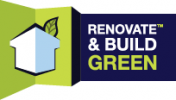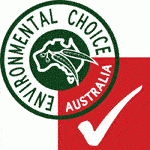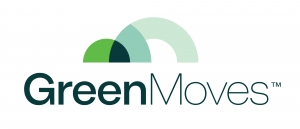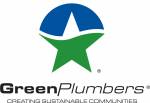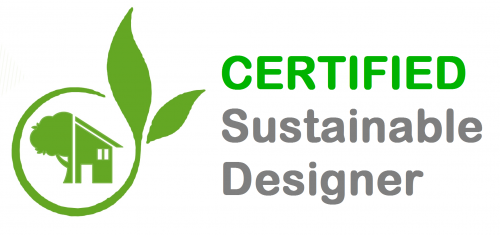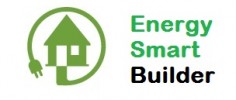Insulation Installer Course
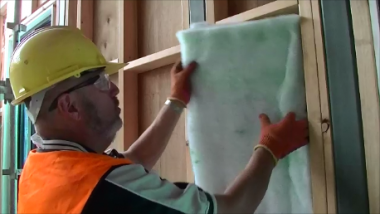
The Insulation Installer Course includes five units of competency which are a hurdle requirement for applying to get EEC Certified as a Certified Insulation Installer. For more information about the Certified Insulation Installer certification visit the EEC Certified website
Required Training
Applicants must complete the following units of competency, or equivalent units of competency;
CPCCWHS2001 – Apply WHS requirements, policies and procedures in the construction industry;
CPCCOM1015 – Carry out measurements and calculations;
CPCCCM2012 – Work safely at heights;
CPCCPB3014 – Install bulk insulation and pliable membrane products;
These subjects require knowledge of:
- Electrical risk assessment process, hazard identification and reporting as per Australian Standard (AS) AS 3999 for common floor, wall and ceiling insulation installation
- Key requirements of Australian Standards - relating to floor, wall and ceiling information, including:
- AS/NZS 4859.1 Materials for the thermal insulation of buildings - Testing and labelling of insulation;
- AS 4200.2 Pliable building membranes – Installation; and
- AS/NZS 3000 (with Amd 1) Wiring Rules, in particular Clause 4.5.2.3.
- Requirements relating to floor, wall and ceiling insulation installation from AS 3999 for:
- personal safety;
- electrical risk assessment;
- energy efficiency – new products and technologies.
- Specifications of common floor, wall and ceiling installation materials, including R rating and dimensions
- Type and purpose of lock out tags in floor, wall and ceiling insulation installation
- Requirements of AS 3999 for recessed luminaries and electrical cable, in floor, wall and ceiling insulation installation including:
- operating temperature limit of electrical cables;
- effect on cables partially surrounded by thermal insulation and fully surrounded by thermal insulation;
- common wiring systems used in domestic premises indicating the age of the installation;
- clearance and restraint methods to retain thermal insulation from recessed down lights and ancillary equipment; and
- electrical hazards in floor, wall and roof spaces, including unenclosed connections, unenclosed conductors, damaged cable sheaths and exposed conductors.
- Product and process knowledge to identify common problems and predict consequences in floor, wall and ceiling insulation installation
- Quality requirements for installation of floor, wall and ceiling insulation material including thermal and acoustic performance
- Energy efficiency of common floor, wall and ceiling insulation material types
- Methods for measuring and cutting floor, wall and ceiling insulation material
- Procedures for conducting a final inspection of a floor, wall and ceiling insulation installation
- Workplace procedures for environmental requirements for waste, including waste management and recycling relating to floor, wall and ceiling insulation installation
- Procedures for documenting, distributing and storing Statements of Insulation Installation incorporating the format and required information as defined in AS 3999 – Appendix D
The fifth subject is EEC001 Prepare for insulation retrofitting within ceiling spaces
These subjects are now available through the Green Building Institute, in partnership with Wall and Ceiling Institute RTO 72012
Cost:
Tasmania:
$1200 for full course

The Insulation Installer Course is now 80% funded in Tasmania. If you live in Tasmania and meet the eligibility criteria you can now claim 80% of the course cost back from Keystone Tasmania.
ACT:
$715 for RPL Assessment for insulation installers with more than 2 years experience. Eligible ACT residents are eligible for funding for training rebates of up to 70% of training costs through the ACT Building and Construction Industry Training Fund. Submit applications for funding through the website.
VIC:
Eligible workers have access to fully funded training and certification to support the safe introduction of retrofit ceiling insulation in Victorian homes under the Victorian Energy Upgrades (VEU) program.
-
White Card Requirement
Students must hold a valid General Construction Induction (White Card). -
Citizenship and Residency
Students must be an Australian citizen, permanent resident, or hold a visa that includes study and work rights.
Students must also be Victorian residents. Non-Victorian residents may be eligible only if there is a demonstrable link to Victoria and written approval is obtained from Solar Victoria before enrolment. -
Minimum Work Experience
Students must meet one of the following experience pathways:
• Six months demonstrated experience installing ceiling insulation (retrofit or new build), or
• Twelve months experience in an adjacent qualified trade such as plastering, or
• For women and Aboriginal and Torres Strait Islander people, twelve months experience in any role within the building or construction sector. -
Certification Intention
Students must have the intention to apply for Energy Efficiency Council (EEC) Certified Insulation Installer certification after completing the training.
All other states:
$1200 for full course
$750 for RPL assessment + $250 per unit for gap training for experienced workers
Eligible WA residents are eligible for funding of training rebates of up to 80% of training costs through the Construction Training Fund.
Availability:
Students must be currently working in the building industry and have access to a range of insulation, a fall-arrest harness, PPE and a building site. Available Australia-wide.
Method of Delivery:
Students will complete all theory on-line using our self-paced elearning platform, and demonstrate practical skills on-site. The practical skills must be recorded photographically and uploaded for the trainer to mark.
Recognition of Prior Learning
Students with more than 1 year experience installing insulation, or with a carpentry or wall and ceiling lining qualification are eligible for Recognition of Prior Learning.
Duration:
The course is self-paced and takes about five days to complete. This may be shorter subject to prior experience and/or RPL
Testimonials:
"The in depth training really helped me open up to just how important it is. Fantastic course. Thanks so much." - M. Wicken, National Roof Care, ACT
"I think its wonderful that certification/licensing is being introduced to the insulation industry, one of Australia's smallest industries despite it being by far one of the highest paying. Maybe now the government will finally listen to us certified experts about their abysmal construction standards!!! Everyone getting certified now are essentially this industry's pioneers, and I'm proud to support the advancement of our industry's future by becoming certified/licensed in my trade. I think this course is a massive step in the right direction and helps to shed light on the endless opportunities for self-starters we insulation bosses are all desperate to dump work onto. I think certification will finally attract younger workers that until now have had no reason to consider insulation as a viable profession. This course is a great starting point for anyone wanting certification in a trade guaranteed to earn you top dollar. Nobody in this trade earns less than six figures, and it all starts with this course." - J.York, York Insulation, NSW
"I learned about various insulation materials such as fiberglass, cellulose, and so on along with their properties and applications. I mastered installation techniques for attics, walls, floors, and ceilings, ensuring proper fitting and securing of materials. The course emphasized safety procedures, including the use of personal protective equipment and handling materials safely. I also gained knowledge of local and national building codes, energy efficiency principles like R-values and thermal bridging, and problem-solving skills for assessing insulation needs and addressing issues. Additionally, I learned how to effectively communicate with customers, provide recommendations, and understand the environmental impacts of insulation choices, including sustainable options. Lastly, I would like to thank you for providing such courses." - N. Wangchuk, Insulation Extract, W.A.



